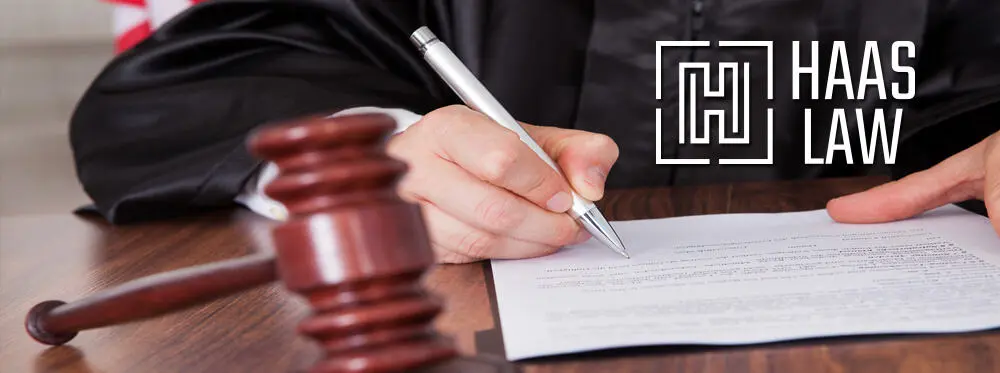

Haas Law was referred a federal drug case from another criminal defense attorney who lacked experience in federal court. Haas Law was subsequently retained to represent a 23 year old man, J.B.
J.B. was arrested by Homeland Security Investigations (HSI) in the Southern District of Florida (Miami) and was subsequently indicted. Our client faced several serious federal charges including Conspiracy to Import a Controlled Substance, Conspiracy to Possess with Intent to Distribute Cocaine, and Attempt to Possess with Intent to Distribute a Controlled Substance. Because the allegations involved over 500 grams of cocaine, our client faced a mandatory minimum sentence of 5 years in prison on each charge.
It was alleged that J.B. assisted at least 3 other individuals by importing over two and a half kilograms of cocaine from Aruba. The cocaine was secretly smuggled into the United States by someone else, concealed within elastic bands. J.B. was supposed to meet with that individual and pick up what he believed was “money” from them to give to someone else. The circumstances in which our client was picking up a package were admittedly suspicious and could have resulted in his conviction. J.B. was supposed to meet with people he did not know and pick up what he was believed was money. However, since money is not a controlled substance, it is not illegal to possess and it is a lawful defense so long as he genuinely believed it was money.
In a federal drug case, the government must prove that someone knows that a package contains a controlled substance but they do not have to prove knowledge as to which particular drug it is. As a result, if someone thinks the package contains marijuana but it really contains methamphetamine, a defendant can be convicted of methamphetamine related charges.
After he was arrested, J.B. gave a few recorded statements to the federal agents and stated that he believed he was picking up money. The federal agents yelled at J.B. during his interview and told him that his story was not believable. The agents requested J.B. place recorded calls to the person who asked him to do this. During one of those recorded calls, J.B.’s friend allegedly told him “that there were two kilograms of cocaine in the bag and that he had previously told J.B. that the bag contained narcotics.” However, J.B. insisted he did not know it contained a controlled substance.
The federal agents did not believe J.B. but Haas Law did. And what Haas Law found showed that the agents did more than just choose to disbelieve J.B.
We believed that our client thought he was picking up money and we went to work on his behalf. It is one thing to have a good defense and it is another to prove innocence. And we believed that we had an innocent client.
When J.B. was arrested, the agents seized J.B.’s cell phone and communicated directly with the person who allegedly told J.B. about the cocaine. However, the agents stated that J.B.’s cell phone was then “remotely erased” and failed to document their text message communications with J.B.’s “friend.” The “spoliation” of evidence is the intentional, reckless, or negligent withholding, hiding, altering, fabricating, or destroying of evidence relevant to a legal proceeding. It can result in penalties for the party that tampers with evidence.
Despite the deleted messages and the government possessing our client’s phone, we recovered the text messages in our investigation. When we reviewed the WhatsApp messages, we found out why the agents did not document what the text messages said. It was because the text messages exonerated J.B. The WhatsApp messages revealed that J.B.’s friend admitted that he lied to J.B. about the contents being money. He also apologized to J.B. three times for lying to him. The agents knew this and arrested J.B. anyways. They then failed to document it in any of their reports, at the bond hearing, or in their arrest affidavit.
The Brady doctrine is a pretrial discovery rule that was established by the United States Supreme Court in Brady v. Maryland (1963). The rule requires that the Government must disclose all exculpatory evidence to the defendant in a criminal case. Exculpatory evidence is evidence that might exonerate the defendant.
Haas Law had not only identified exculpatory evidence but now we identified – and proved – misconduct by the arresting agents in their failure to document and destruction of the exculpatory evidence.
David Haas brought the issue to the attention of the federal prosecutor. That prosecutor, who initially believed his agents and did not know about the exculpatory evidence, believed Haas Law. We convinced the prosecutor to believe our client instead of the federal agents. And the prosecutor did believe our client.
As a result of Haas Law’s investigation and advocacy, the government quickly dismissed the indictment against our client.
